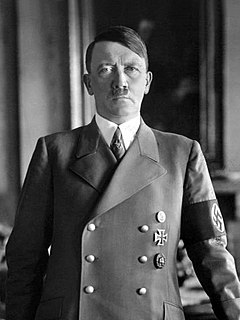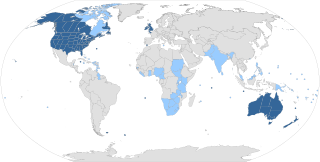
The Bible is a collection of religious texts or scriptures sacred in Christianity, Judaism, Samaritanism, and many other religions. The Bible is an anthology—a compilation of texts of a variety of forms—originally written in Hebrew, Aramaic, and Koine Greek. These texts include instructions, stories, poetry, and prophesies, among other genres. The collection of materials that are accepted as part of the Bible by a particular religious tradition or community is called a biblical canon. Believers in the Bible generally consider it to be a product of divine inspiration, while understanding what that means in different ways.
Hinduism is an Indian religion and dharma, or way of life. It is the world's third-largest religion, with over 1.2 billion followers, or 15–16% of the global population, known as Hindus. The word Hindu is an exonym, and while Hinduism has been called the oldest religion in the world, many practitioners refer to their religion as Sanātana Dharma, which refers to the idea that its origins lie beyond human history, as revealed in the Hindu texts. Another, less fitting, endonym is Vaidika dharma, the 'dharma related to the Vedas.'

India, officially the Republic of India, is a country in South Asia. It is the seventh-largest country by area, the second-most populous country, and the most populous democracy in the world. Bounded by the Indian Ocean on the south, the Arabian Sea on the southwest, and the Bay of Bengal on the southeast, it shares land borders with Pakistan to the west; China, Nepal, and Bhutan to the north; and Bangladesh and Myanmar to the east. In the Indian Ocean, India is in the vicinity of Sri Lanka and the Maldives; its Andaman and Nicobar Islands share a maritime border with Thailand, Myanmar and Indonesia.

The International Standard Book Number (ISBN) is a numeric commercial book identifier that is intended to be unique. Publishers purchase ISBNs from an affiliate of the International ISBN Agency.

Muhammad ibn Abdullah was an Arab religious, social, and political leader and the founder of the world religion of Islam. According to Islamic doctrine, he was a prophet, divinely inspired to preach and confirm the monotheistic teachings of Adam, Abraham, Moses, Jesus, and other prophets. He is believed to be the final prophet of God in all the main branches of Islam, though the modern Ahmadiyya movement diverges from this belief. Muhammad united Arabia into a single Muslim polity, with the Quran as well as his teachings and practices forming the basis of Islamic religious belief.

Mohandas Karamchand Gandhi was an Indian lawyer, anti-colonial nationalist and political ethicist who employed nonviolent resistance to lead the successful campaign for India's independence from British rule, and to later inspire movements for civil rights and freedom across the world. The honorific Mahātmā, first applied to him in 1914 in South Africa, is now used throughout the world.

Sex is the trait that determines whether a sexually reproducing animal or plant produces male gametes or female ones. Male plants and animals produce smaller gametes while females produce larger ones. Organisms that produce both types of gametes are called hermaphrodites. During sexual reproduction, male and female gametes fuse to form zygotes, which develop into offspring that inherit traits from each parent.

Sexual intercourse is a sexual activity typically involving the insertion and thrusting of the penis into the vagina for sexual pleasure, reproduction, or both. This is also known as vaginal intercourse or vaginal sex. Other forms of penetrative sexual intercourse include anal sex, oral sex, fingering and penetration by use of a dildo. These activities involve physical intimacy between two or more individuals and are usually used among humans solely for physical or emotional pleasure and can contribute to human bonding.

William Shakespeare was an English playwright, poet and actor. He is widely regarded as the greatest writer in the English language and the world's greatest dramatist. He is often called England's national poet and the "Bard of Avon". His extant works, including collaborations, consist of some 39 plays, 154 sonnets, three long narrative poems, and a few other verses, some of uncertain authorship. His plays have been translated into every major living language and are performed more often than those of any other playwright. His works continue to be studied and reinterpreted.

World War II or the Second World War, often abbreviated as WWII or WW2, was a global war that lasted from 1939 to 1945. It involved the vast majority of the world's countries—including all of the great powers—forming two opposing military alliances: the Allies and the Axis powers. In a total war directly involving more than 100 million personnel from more than 30 countries, the major participants threw their entire economic, industrial, and scientific capabilities behind the war effort, blurring the distinction between civilian and military resources. Aircraft played a major role in the conflict, enabling the strategic bombing of population centres and the only two uses of nuclear weapons in war. World War II was by far the deadliest conflict in human history; it resulted in 70 to 85 million fatalities, a majority being civilians. Tens of millions of people died due to genocides, starvation, massacres, and disease. In the wake of the Axis defeat, Germany and Japan were occupied, and war crimes tribunals were conducted against German and Japanese leaders.

Jesus, also referred to as Jesus of Nazareth or Jesus Christ, was a first-century Jewish preacher and religious leader. He is the central figure of Christianity, the world's largest religion. Most Christians believe he is the incarnation of God the Son and the awaited messiah, prophesied in the Hebrew Bible.

Adolf Hitler was an Austrian-born German politician who was the dictator of Germany from 1933 until his death in 1945. He rose to power as the leader of the Nazi Party, becoming the chancellor in 1933 and then assuming the title of Führer und Reichskanzler in 1934. During his dictatorship, he initiated World War II in Europe by invading Poland on 1 September 1939. He was closely involved in military operations throughout the war and was central to the perpetration of the Holocaust, the genocide of about six million Jews and millions of other victims.

The United States of America, commonly known as the United States or America, is a country primarily located in North America. It consists of 50 states, a federal district, five major unincorporated territories, 326 Indian reservations, and nine minor outlying islands. At nearly 3.8 million square miles, it is the world's fourth-largest country by land area and third-largest by total area. The United States shares land and maritime borders with Canada to the north and Mexico to the south as well as maritime borders with the Bahamas, Cuba, and Russia. With more than 331 million people, it is the third most populous country in the world. The national capital is Washington, D.C., and the most populous city and financial center is New York City.

World War I or the First World War, often abbreviated as WWI or WW1, began on 28 July 1914 and ended on 11 November 1918. Referred to by contemporaries as the "Great War", its belligerents included much of Europe, the Russian Empire, the United States, and the Ottoman Empire, with fighting also expanding into the Middle East, Africa, and parts of Asia. One of the deadliest conflicts in history, an estimated 9 million people were killed in combat, while over 5 million civilians died from military occupation, bombardment, hunger, and disease. Millions of additional deaths resulted from genocides within the Ottoman Empire and the 1918 influenza pandemic, which was exacerbated by the movement of combatants during the war.

Canada is a country in North America. Its ten provinces and three territories extend from the Atlantic Ocean to the Pacific Ocean and northward into the Arctic Ocean, covering over 9.98 million square kilometres, making it the world's second-largest country by total area. Its southern and western border with the United States, stretching 8,891 kilometres (5,525 mi), is the world's longest bi-national land border. Canada's capital is Ottawa, and its three largest metropolitan areas are Toronto, Montreal, and Vancouver.

Islam is an Abrahamic, monotheistic religion centred primarily around the Quran, a religious text that is considered by Muslims to be the direct word of God as it was revealed to the Prophet Muhammad. It is the world's second-largest religion with more than two billion followers, comprising more than 25 percent of the global population. Islam teaches that God is merciful, all-powerful, and unique, and has guided humanity through various prophets, revealed scriptures, and natural signs, with the Quran serving as the final, universal revelation and Muhammad serving as the Seal of the Prophets. The teachings and practices of Muhammad (Sunnah) documented in traditional collected accounts (Hadith) provide a secondary constitutional model for Muslims to follow after the Quran.

English is a West Germanic language of the Indo-European language family, originally spoken by the inhabitants of early medieval England. It is named after the Angles, one of the ancient Germanic peoples that migrated from Anglia, a peninsula on the Baltic Sea, to the area of Great Britain later named after them: England. The closest living relatives of English include Scots, followed by the Low Saxon and Frisian languages. While English is genealogically West Germanic, its vocabulary is also distinctively influenced by Old Norman French and Latin, as well as by Old Norse. Speakers of English are called Anglophones.

Animals are multicellular, eukaryotic organisms in the biological kingdom Animalia. With few exceptions, animals consume organic material, breathe oxygen, are able to move, can reproduce sexually, and go through an ontogenetic stage in which their body consists of a hollow sphere of cells, the blastula, during embryonic development. Over 1.5 million living animal species have been described—of which around 1 million are insects—but it has been estimated there are over 7 million animal species in total. Animals range in length from 8.5 micrometres (0.00033 in) to 33.6 metres (110 ft). They have complex interactions with each other and their environments, forming intricate food webs. The scientific study of animals is known as zoology.

Philosophy is the study of general and fundamental questions, such as those about existence, reason, knowledge, values, mind, and language. Such questions are often posed as problems to be studied or resolved. Some sources claim the term was coined by Pythagoras ; others dispute this story, arguing that Pythagoreans merely claimed use of a preexisting term. Philosophical methods include questioning, critical discussion, rational argument, and systematic presentation.


















